Adult ADHD
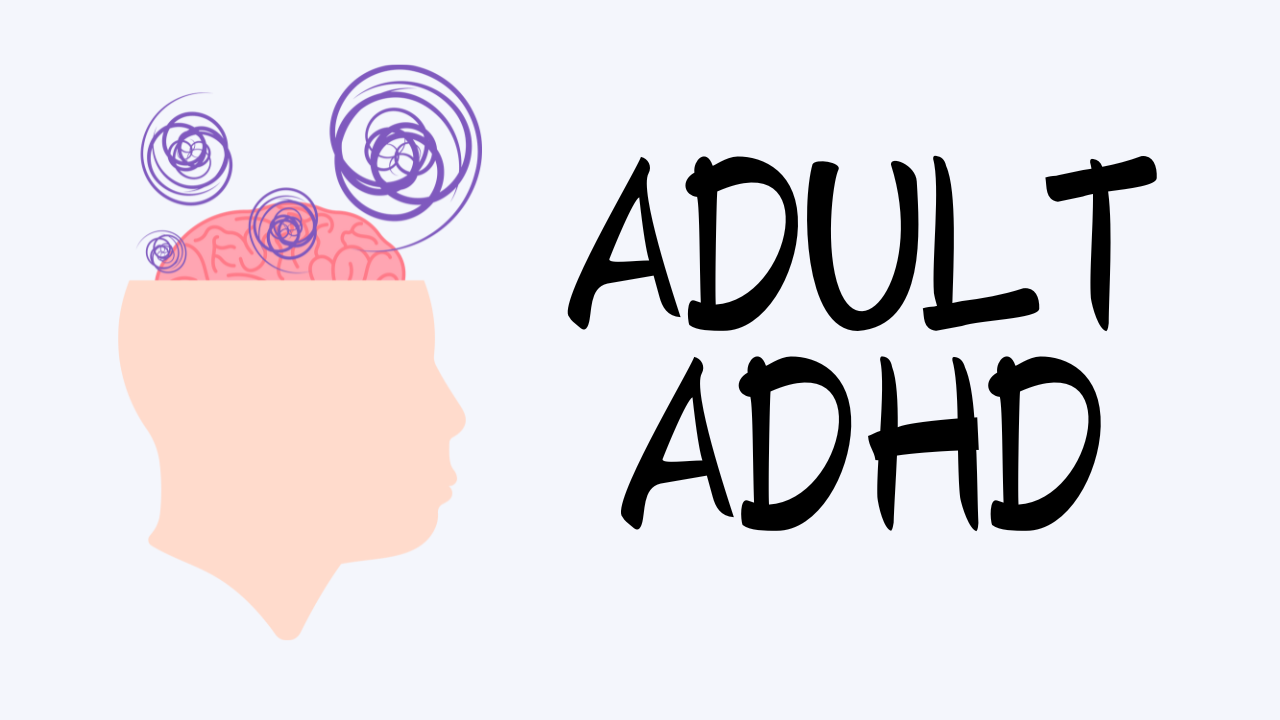
Step right into the realm of adult ADHD. If you have just received a diagnosis of Attention Deficit/Hyperactivity Disorder (ADHD) or think you might have it, you will find helpful information on the disorder and how to manage it in this article.
No matter how tough things become, know that you are not the only one dealing with adult ADHD. So many people can relate to what you're going through because ADHD impacts about 4.4% of adults.
Understanding adult ADHD and its symptoms, as well as the prevalent comorbid conditions, is the focus of this article. We will also go over some of the natural alternatives for treating ADHD, including vitamins, and talk about their function for adults.
We will provide you practical advice and tactics to help you manage the symptoms of adult ADHD, which is an essential part of living with the disorder. Because the signs and symptoms of attention deficit hyperactivity disorder (ADHD) might present differently in men and women, we will also focus on the differences between the two sexes.
Here we'll go over some of the most popular supplements for adult ADHD and why they might be helpful for certain people. While dietary supplements may help, they are no substitute for the advice and care of a medical expert.
You will finish this article with a thorough knowledge of adult ADHD and the many methods for dealing with its symptoms. When dealing with adult ADHD, it is crucial to seek the advice and assistance of healthcare specialists.
What is Adult ADHD?
Adult ADHD, or attention-deficit/hyperactivity disorder, is a neurodevelopmental disorder that affects adults. It is characterized by a persistent pattern of inattention, hyperactivity, and impulsivity that interferes with daily functioning and quality of life. While ADHD is commonly associated with children, it can continue into adulthood for many individuals.

Adults with ADHD often struggle with organization, time management, and completing tasks. They may have difficulty paying attention, staying focused, and following instructions. Hyperactivity can manifest as restlessness, fidgeting, and an inability to sit still for long periods. Impulsivity may lead to impulsive decisions, interrupting others, or speaking without thinking.
It is important to note that adult ADHD is not a result of laziness or a lack of intelligence. It is a legitimate neurobiological condition that affects the way the brain processes information and regulates behavior.
Adult ADHD can have a significant impact on various aspects of life, including work, relationships, and overall well-being. Some individuals may experience elevated levels of stress, anxiety, and depression as a result of struggling with ADHD symptoms.
Fortunately, with proper diagnosis and treatment, individuals with adult ADHD can learn effective coping strategies and lead fulfilling lives. Treatment typically involves a combination of medication, psychoeducation, therapy, and lifestyle modifications.
It is essential to consult with a healthcare professional or mental health specialist for an accurate diagnosis and personalized treatment plan. They can provide guidance and support in managing adult ADHD and improving overall functioning.
Recognizing the Symptoms
Recognizing the symptoms of adult ADHD is crucial for obtaining an accurate diagnosis and seeking appropriate treatment. While the specific symptoms can vary from person to person, there are key signs to look out for.
One prominent symptom is difficulty with organization and time management. Adults with ADHD often struggle to keep track of tasks, appointments, and deadlines. They may frequently misplace important items or forget to complete necessary tasks.
Poor attention and focus are also common symptoms. Adults with ADHD may find it challenging to concentrate on tasks that are not inherently interesting or stimulating. They may frequently jump from one task to another without completing any of them.
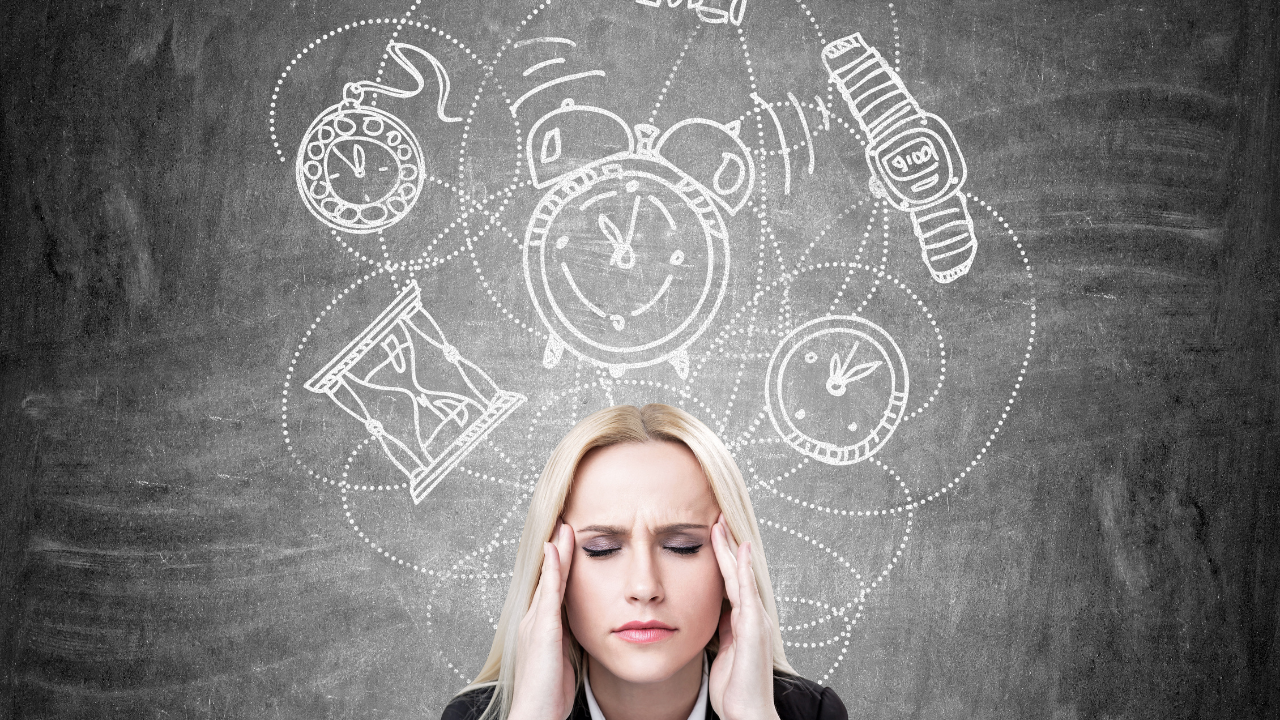
Hyperactivity can manifest differently in adults compared to children. While children may display excessive physical restlessness, adults with ADHD may instead experience a sense of inner restlessness or an inability to relax. They may also have difficulty sitting still for long periods of time.
Impulsivity is another hallmark symptom of adult ADHD. Individuals with ADHD may have difficulty controlling their impulsive behaviors, often interrupting others while they are speaking or making impulsive decisions without fully considering the consequences.
Other symptoms may include chronic lateness, difficulty organizing thoughts, frequent mood swings, and a tendency to procrastinate.
It�s important to note that experiencing one or two of these symptoms does not necessarily indicate ADHD. However, if a person consistently experiences several symptoms that significantly interfere with their daily life, it may be worth seeking a professional evaluation.
In the next section, we will explore the common comorbid disorders that often accompany adult ADHD.
Common Comorbid Disorders
In addition to the symptoms of adult ADHD, it is not uncommon for individuals with this condition to also experience other comorbid disorders. Comorbidity refers to the presence of two or more conditions or disorders occurring in the same person simultaneously. Some of the most common comorbid disorders seen in adults with ADHD include anxiety disorders, mood disorders, and substance use disorders.
Anxiety disorders, such as generalized anxiety disorder, social anxiety disorder, and panic disorder, are often found in individuals with adult ADHD. The restlessness and difficulty with concentration that accompany ADHD can contribute to feelings of anxiety. In turn, anxiety can exacerbate ADHD symptoms, such as trouble focusing and staying organized.
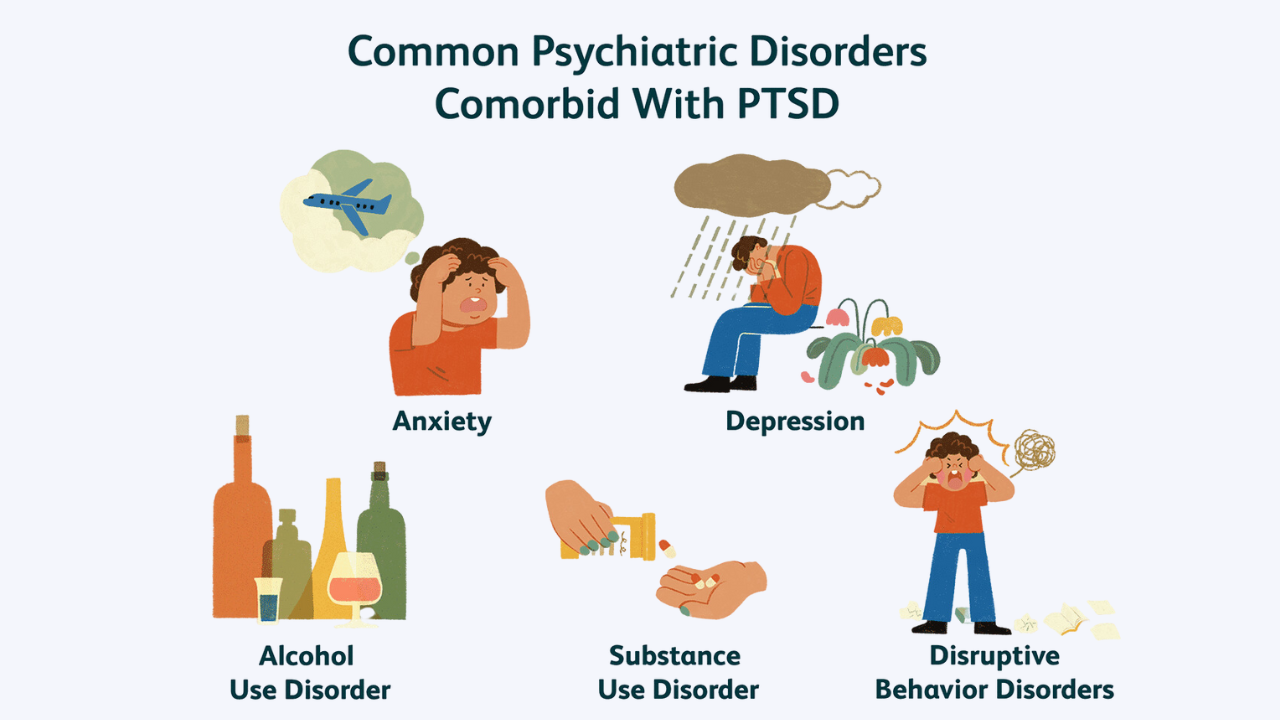
Mood disorders, such as depression and bipolar disorder, are also frequently seen in adults with ADHD. The emotional dysregulation and impulsivity associated with ADHD can make individuals more susceptible to developing mood disorders. Likewise, mood disorders can further disrupt attention and concentration.
Substance use disorders, including drug and alcohol addiction, are also more prevalent among adults with ADHD. Some individuals with ADHD may turn to substances as a way to self-medicate and ease the symptoms of their condition. However, substance use can worsen ADHD symptoms and lead to additional complications.
It is important to recognize and address these comorbid disorders in addition to ADHD. Treatment for comorbid conditions may involve a combination of therapy, medication, and lifestyle modifications. Seeking professional help from a healthcare provider experienced in treating adult ADHD and its comorbidities is crucial to managing these conditions effectively.
In the next section, we will delve into the role of natural ADHD supplements for adults and their potential benefits.
The Role Of Natural ADHD Supplements for Adults
When it comes to managing the symptoms of adult ADHD, many individuals are interested in exploring natural treatment options. One popular approach is the use of natural ADHD supplements. These supplements often contain ingredients that are believed to support brain function and improve focus and attention.
While natural ADHD supplements can be appealing, it is important to approach them with caution. The effectiveness of these supplements varies, and it is essential to research each product and consult with a healthcare professional before incorporating them into your treatment plan.
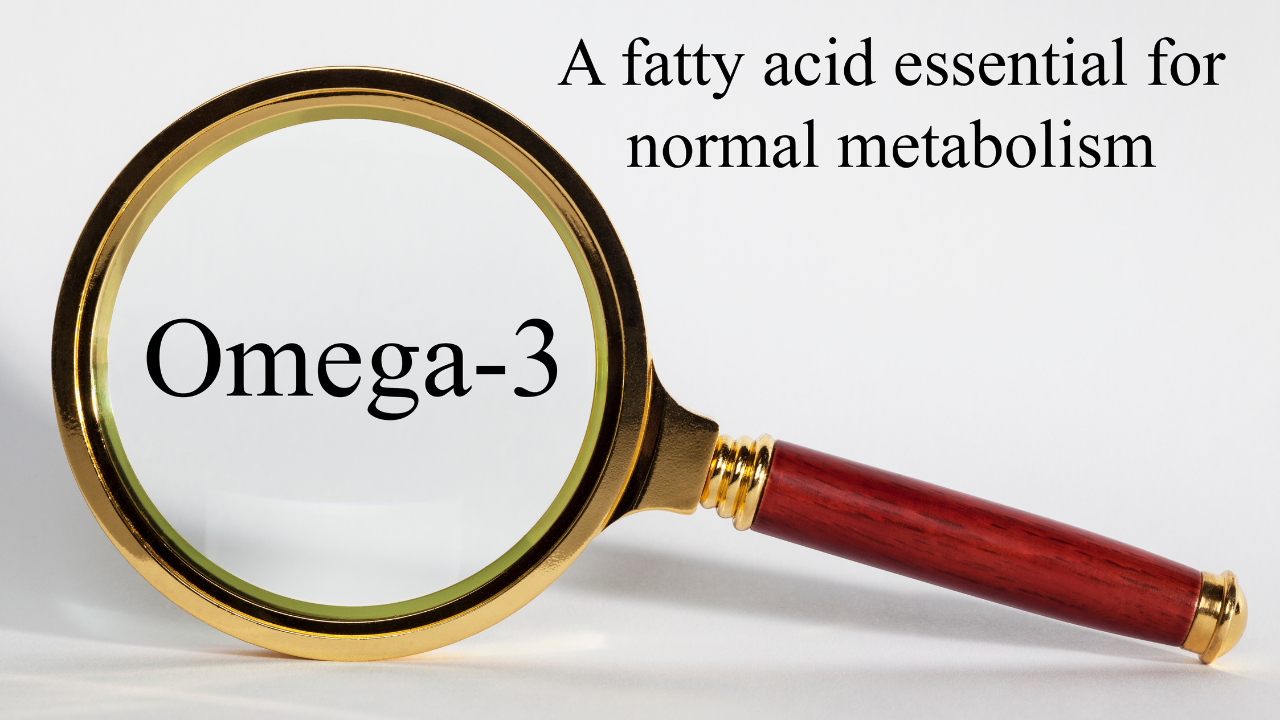
Some commonly used natural ADHD supplements include:
- Omega-3 fatty acids: Found in fish oil and flaxseed oil, omega-3 fatty acids have been touted for their potential cognitive benefits. Research suggests that omega-3 supplementation may help reduce ADHD symptoms, particularly in regard to attention and impulsivity.
- Zinc: Studies have shown that individuals with ADHD may have lower levels of zinc in their bodies. Supplementing with zinc may help improve symptoms such as hyperactivity and impulsivity.
- Magnesium: Magnesium plays a crucial role in the regulation of neurotransmitters, which are important for brain function. Some research suggests that magnesium supplementation may help reduce ADHD symptoms, particularly in children.
- Vitamin B6: Vitamin B6 is involved in the production of neurotransmitters, such as serotonin and dopamine. While research on vitamin B6 for ADHD is limited, some studies have shown potential benefits in reducing symptoms.
It is important to remember that natural ADHD supplements should not replace traditional treatments, such as therapy and medication. They may be used as a complementary approach to support overall ADHD management. Before starting any new supplement regimen, it is crucial to discuss it with your healthcare provider to ensure safety and effectiveness.
Natural Treatments For ADHD In Adults
When it comes to managing adult ADHD, individuals often seek natural treatment options. While these alternatives may not replace traditional therapies and medication, they can be used as complementary approaches. Here are some natural treatments that may help alleviate symptoms and improve overall well-being for adults with ADHD.

- Exercise: Regular physical activity has been shown to have positive effects on ADHD symptoms. Exercise releases endorphins, which can improve mood and focus. Engaging in activities such as jogging, yoga, or swimming can be beneficial.
- Mindfulness and meditation: Practicing mindfulness and meditation techniques can help adults with ADHD increase their ability to focus and reduce impulsivity. Mindfulness exercises involve paying attention to the present moment without judgment, which can improve overall self-awareness and attention control.
- Healthy diet: A balanced diet rich in whole foods, fruits, vegetables, and lean proteins can support brain function and help minimize ADHD symptoms. Avoiding excessive sugar and caffeine intake is also important, as they can contribute to increased restlessness and impulsivity.
- Sleep hygiene: Establishing a consistent sleep routine and prioritizing good sleep hygiene can have a positive impact on ADHD symptoms. Getting enough quality sleep can improve focus, attention, and overall well-being.
- Stress management: Stress can exacerbate ADHD symptoms. Engaging in stress-reducing activities such as deep breathing exercises, journaling, or engaging in hobbies can help manage stress levels.
- Support groups and therapy: Joining support groups or seeking therapy can provide individuals with ADHD with a safe space to discuss challenges and learn coping strategies. Cognitive-behavioral therapy (CBT) has shown effectiveness in managing ADHD symptoms.
Remember, it's important to consult with a healthcare professional before starting any natural treatment regimen. They can provide guidance and ensure that these approaches are safe and effective for your specific situation.
Managing Symptoms
Managing symptoms of adult ADHD is crucial for improving overall functioning and quality of life. While everyone's experience with ADHD is unique, there are some strategies that can help in managing symptoms effectively.

- Time management: Adults with ADHD often struggle with time management and staying organized. Creating a daily or weekly schedule and using tools like calendars, reminders, and alarms can help in managing tasks and deadlines.
- Breaking tasks down: Large and overwhelming tasks can feel daunting for someone with ADHD. Breaking them down into smaller, more manageable steps can make them more achievable and reduce stress.
- Implementing routines: Establishing consistent routines can help individuals with ADHD stay focused and maintain productivity. Having set times for tasks like waking up, eating meals, and going to bed can provide structure and prevent procrastination.
- External reminders: Using visual aids like sticky notes, to-do lists, or smartphone apps can serve as external reminders for important tasks or appointments. These cues can help adults with ADHD stay on track and remember important information.
- Seek support: Reach out to family members, friends, or support groups who understand ADHD and can offer support and encouragement. Additionally, consider seeking professional help from therapists or coaches who specialize in ADHD.
- Practice self-care: Prioritizing self-care is essential for managing ADHD symptoms. Engaging in activities that reduce stress, such as exercise, practicing mindfulness, or pursuing hobbies, can help improve focus and overall well-being.
Remember, managing ADHD symptoms takes time and patience. It may be helpful to try different strategies and adapt them to fit your individual needs. Stay consistent and seek support when needed. With proper management, it is possible to lead a fulfilling and successful life with adult ADHD.
ADHD in Women
ADHD is often associated with hyperactive and impulsive behaviors, which are more commonly observed in boys. This misconception has led to many cases of ADHD in girls and women going undiagnosed or misdiagnosed. While the core symptoms of ADHD are similar for both genders, there are some differences in how the disorder manifests in women.
One key difference is that women with ADHD may exhibit more internalizing symptoms, such as daydreaming, excessive worrying, and emotional dysregulation. They may struggle with organization and time management, leading to difficulties in meeting deadlines or keeping up with responsibilities. Additionally, women with ADHD often experience high levels of stress and low self-esteem, as they may constantly feel overwhelmed by the demands of daily life.
The impact of ADHD on women's lives can be significant, affecting their relationships, career development, and overall well-being. Many women with ADHD also face additional challenges related to hormonal fluctuations, such as during pregnancy or menopause.

It is crucial for women to recognize the symptoms of ADHD and seek appropriate support and treatment. This may involve consulting a healthcare professional who specializes in ADHD and undergoing a comprehensive evaluation. Treatment options for women with ADHD may include medication, therapy, and the implementation of practical strategies to manage symptoms.
Women with ADHD can also benefit from building a strong support network, engaging in self-care activities, and learning coping mechanisms to better manage stress and emotions. With the right support and strategies in place, women with ADHD can learn to navigate and thrive in their daily lives. So, if you suspect that you or someone you know may have ADHD, it is important to seek professional help and take the necessary steps towards managing the condition effectively.
ADHD in Men
ADHD, or Attention Deficit Hyperactivity Disorder, affects both men and women, but there are some notable differences in how it presents in men. Men with ADHD often exhibit more externalizing symptoms, such as impulsivity, hyperactivity, and trouble focusing. They may engage in risky behaviors and have difficulty with self-control.
One of the reasons ADHD in men may be more noticeable is because their symptoms tend to be more disruptive and overt. They may struggle with staying still, have trouble following instructions, and may seem restless or constantly on the move. Additionally, men with ADHD may find it challenging to complete tasks, especially those that require sustained attention or organization.
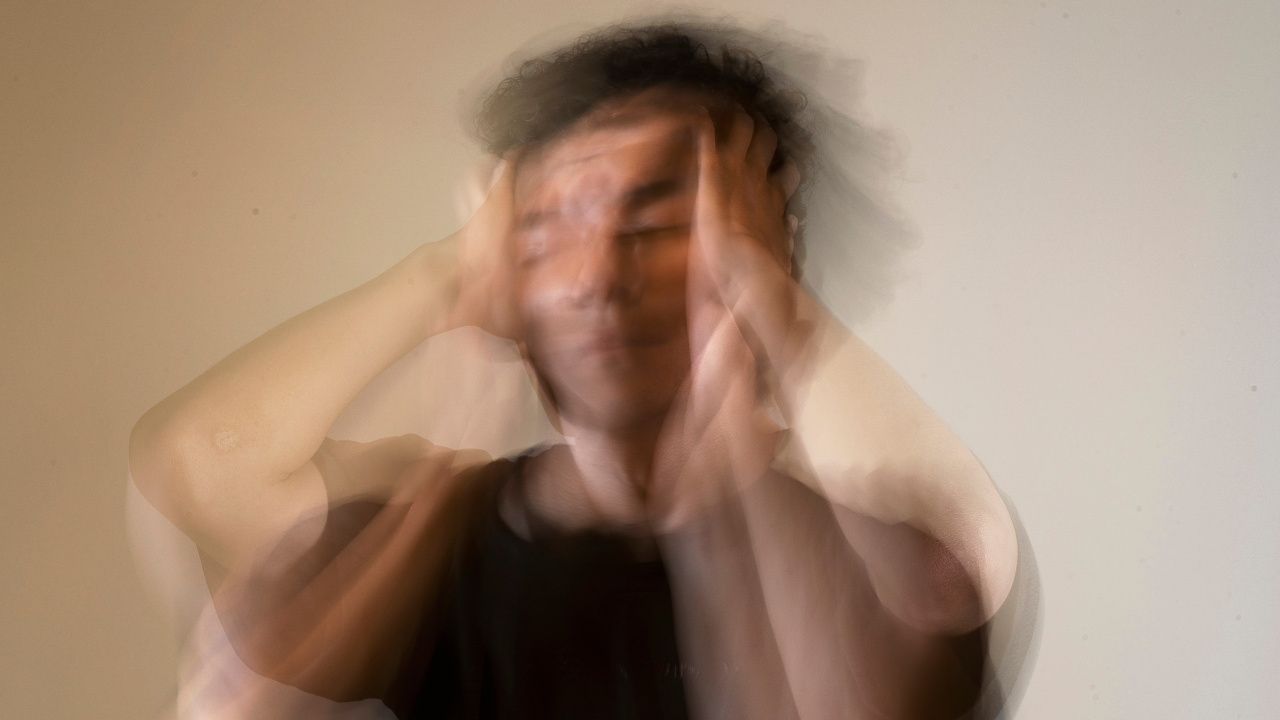
The impact of ADHD on men's lives can be significant, affecting their academic or professional success, relationships, and overall well-being. Men with ADHD may experience difficulties maintaining employment, meeting deadlines, or managing responsibilities. They may also face challenges in social situations, as they may interrupt others, struggle with time management, or have difficulty with impulse control.
It is important for men to recognize the symptoms of ADHD and seek appropriate support. Diagnosis of ADHD in adults often involves a thorough evaluation by a healthcare professional who specializes in ADHD. Treatment options may include medication, therapy, and the implementation of practical strategies to manage symptoms.
In addition to professional help, men with ADHD can benefit from building a strong support network, adopting healthy lifestyle habits, and utilizing coping mechanisms to better manage stress and impulsivity. With the right support and strategies in place, men with ADHD can learn to navigate their daily lives more effectively and improve their overall well-being.
Supplements for Adult ADHD
When it comes to managing adult ADHD, there are various treatment options available, including medication, therapy, and lifestyle modifications. In recent years, there has been growing interest in the use of supplements as a complementary approach to address the symptoms of ADHD.
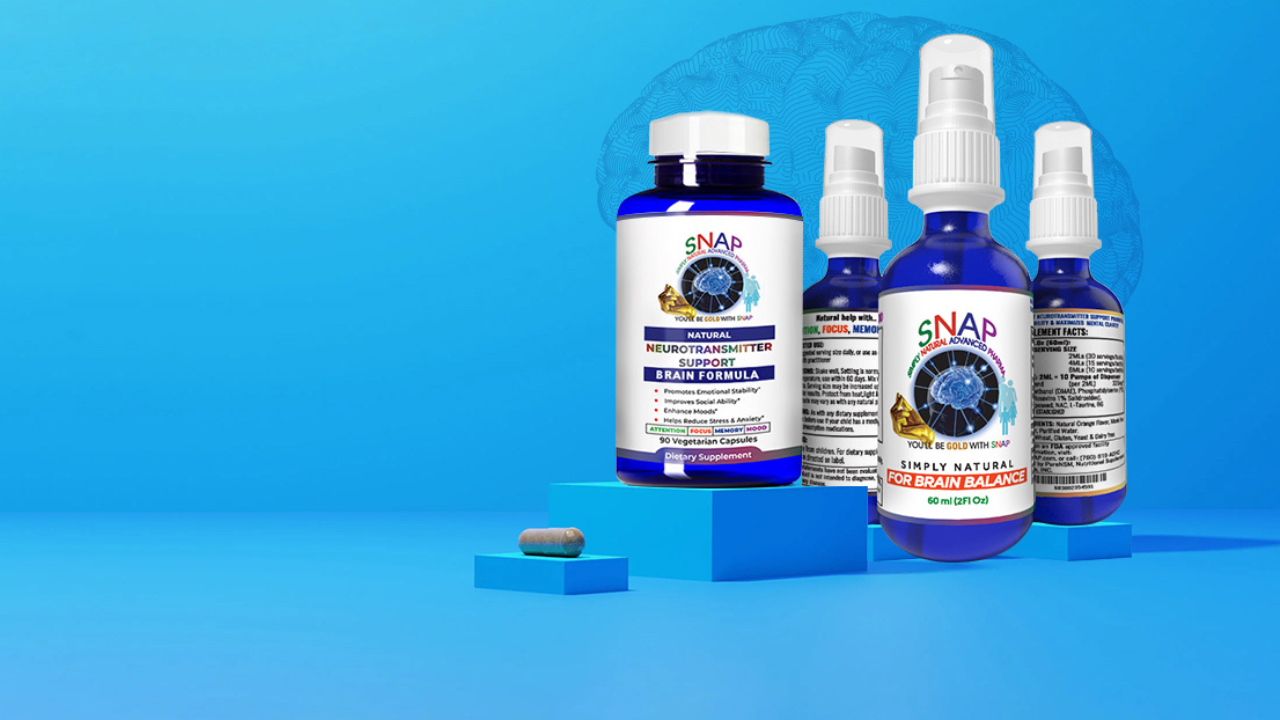
While research on the effectiveness of supplements for ADHD is still limited, some supplements have shown promising results in improving focus, concentration, and overall brain function. Here are a few supplements that have gained attention in the realm of adult ADHD:
- SNAP Brain Formula Supplement: SNAP Brain Formula Supplement, offered by Simply Natural Advanced Pharma, is an over-the-counter supplement designed to help individuals with ADHD manage their symptoms effectively. The SNAP brain supplement formula contains pharmaceutical-grade nutrients, including B6, DMAE, Rhodiola, L-Tyrosine, L-Taurine, Phosphatidylserine, and NAC. These ingredients have been shown to provide specific benefits, such as improving focus, enhancing cognitive function, and supporting emotional regulation.
- Omega-3 Fatty Acids: Found in fish oil, omega-3 fatty acids have been studied for their potential benefits in reducing symptoms of ADHD. They are believed to support brain health and improve cognitive function.
- Zinc: Research suggests that individuals with ADHD may have lower levels of zinc in their bodies. Supplementing with zinc may help improve symptoms such as impulsivity and hyperactivity.
- L-Theanine: This amino acid, commonly found in green tea, has been shown to promote relaxation and improve focus. It may help reduce anxiety and improve overall cognitive function.
- Vitamin B-6: B vitamins are important for brain health and may help support neurotransmitter function. Supplementing with vitamin B-6 may help improve attention and reduce symptoms of ADHD.
It is important to note that while supplements can potentially be beneficial, they should not replace traditional ADHD treatments. It is always recommended to consult with a healthcare professional before starting any new supplement regimen.
Conclusion
While supplements may have a role in supporting brain health and managing the symptoms of adult ADHD, more research is needed to determine their effectiveness. It is best to approach supplements as a part of a comprehensive treatment plan that also includes medication, therapy, and lifestyle modifications.
While omega-3 fatty acids, zinc, L-theanine, and vitamin B-6 have shown some promising results in improving focus, concentration, and overall brain function, it is important to remember that individual responses may vary. It is recommended to consult with a healthcare professional before starting any new supplement regimen, as they can provide personalized guidance based on your specific needs and medical history.
Additionally, supplements should not replace traditional ADHD treatments. Medication prescribed by a healthcare professional and therapy sessions play crucial roles in managing the symptoms and improving daily functioning. Supplements can be used as complementary approaches to address ADHD symptoms, but they should not be the sole treatment method.
Take Charge of
Your Brain Health Today!
Shop Now!
Similar Articles:
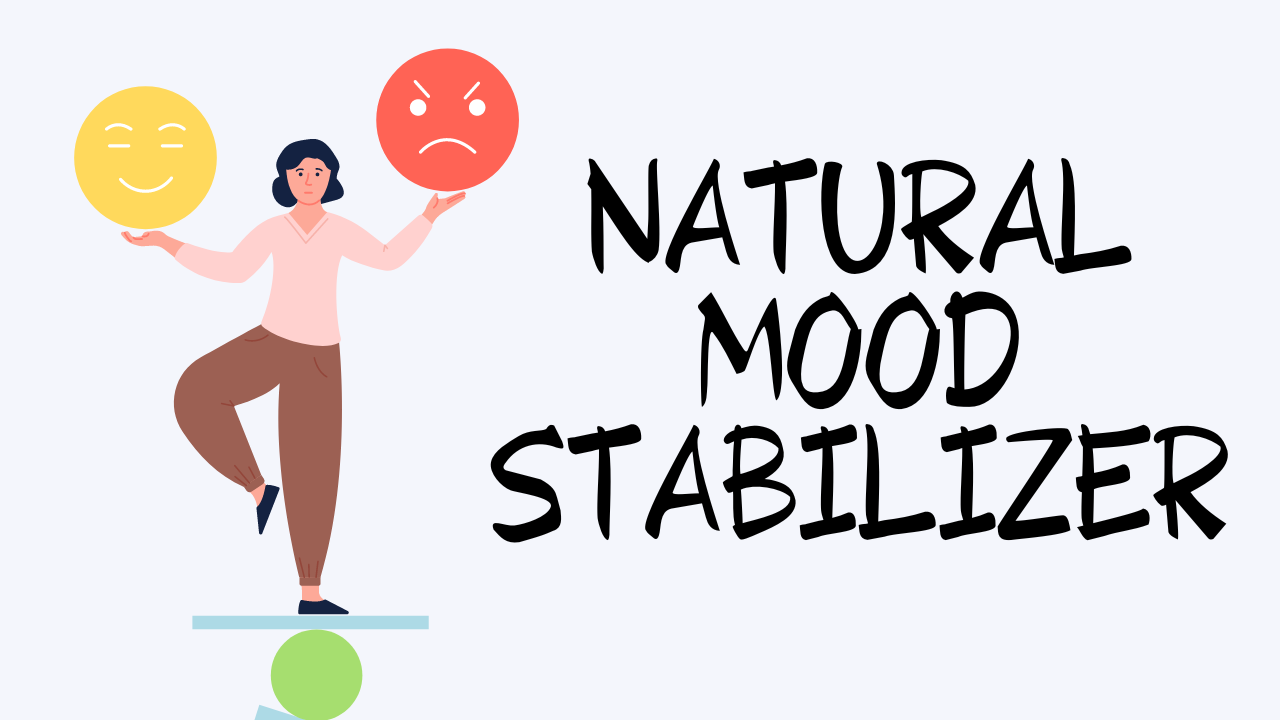
Natural Mood Stabilizer
In the fast-paced world we live in, maintaining emotional balance and well-being has become a paramount...
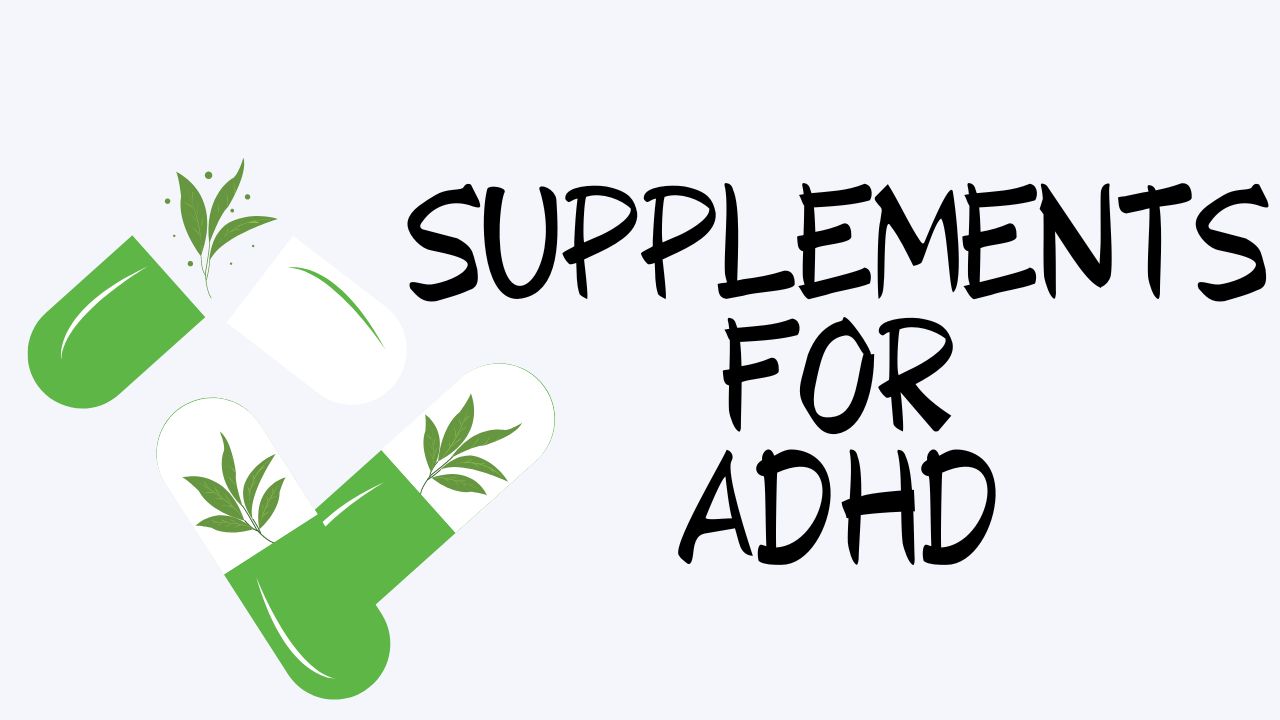
Supplements for ADHD
If you or your loved one has been diagnosed with Attention Deficit Hyperactivity Disorder (ADHD)...
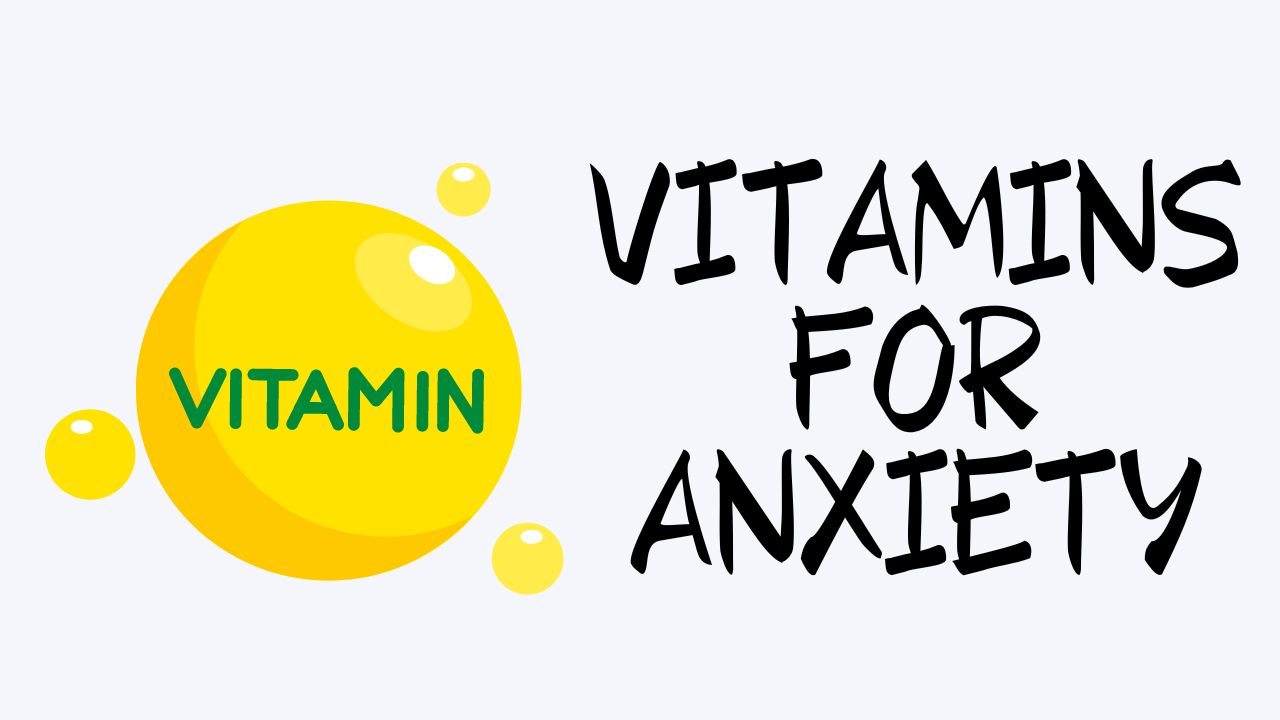
Vitamins for Anxiety
If you're experiencing anxiety, it's crucial to understand that you are not alone. Amidst life's...